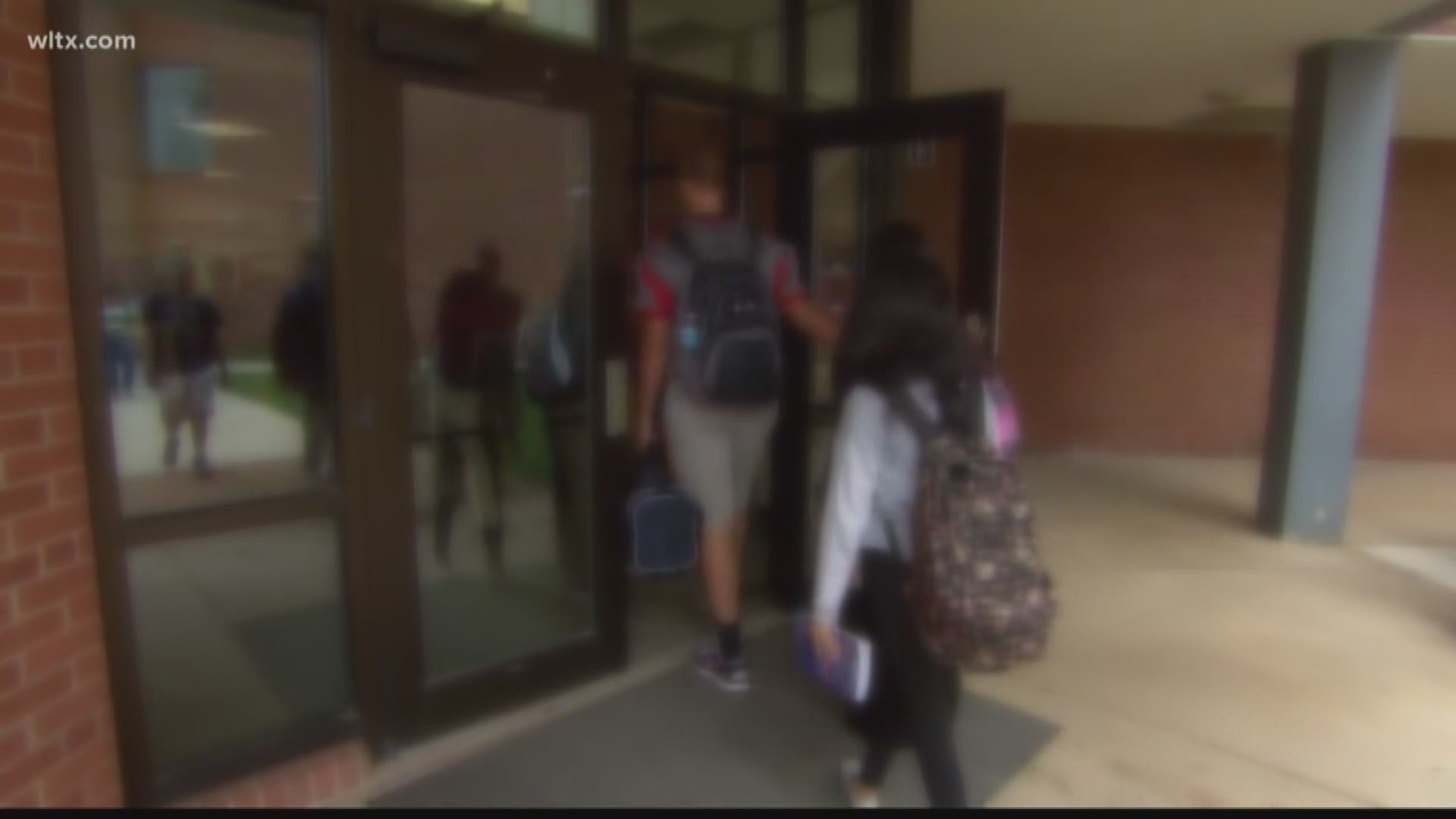Columbia, SC (WLTX) -- It has been nearly two weeks since school started back and now Heyward Gibbes Middle School is dealing with a loss of their own. The coroner's office did confirm a 13-year-old male committed a suicide. Richland One sent News 19 this statement:
"We are saddened by the loss of one of our students. Our thoughts and prayers are with the student's family and the students, faculty and staff at Heyward Gibbes Middle School. A district crisis team was at the school yesterday to provide assistance to any students or staff having difficulty coping with the news of the student's death. The crisis team will continue to provide assistance and support for the remainder of the week, as needed. A letter that was sent home to parents informing them of the student's death also offered them tips on talking with adolescents about loss and grief."
In just a week that death marks the second known suicide in children under 14 in the nation. News 19 also reported on the death of a fourth grader in Denver, Colorado.
According to the National Suicide Prevention Lifeline Organization, suicide is the second leading cause of death for young people between 10 to 24. Certified Therapist Jennifer Wolff said part of the issue is children are being exposed to suicide and other issues much earlier then they are ready for.
"You're hearing conversations younger and younger simply because they're exposed, sadly," Wolff said.
Wolff said it is difficult to understand why more young children take their own lives.
"We do live in the era of social media and technology, but the environment that a child is in is what we formulate for them. So in other words, you need to monitor what they're doing, you need to supervise what their doing, you need to have those really difficult discussions because a lot of times they are receiving information through social media and what have you that is way beyond developmentally or emotionally cognitively the whole works what they're able to to handle," Wolff said.
Having that conversation with a child is different for ever age and circumstance. Wolff said the best thing to do is find out exactly what they know and go from there. Some children know more then others, but it is important to be age appropriate during those discussions.
"I think you first acknowledge as an adult and as a parent your own difficulty and talking about a topic that is so tough, but you do bring it up and be very factual to the point of have you heard other kids talking about this," Wolff said. "Have you heard your friends talk about suicide if they know what suicide is."
According to the National Institute of Mental Health one in 100,000 children ages 10-14 die by suicide each year.
"I would hope we could turn it around, but I believe there is a great deal in society that's working against that simply because kids are exposed before they're able to cognitively and emotionally process it," Wolff said. "Based on that, it looks like it is going to increase. But let's act in good faith and think if we can collectively come together and do those things that have shown to be the most positive and the most helpful we can definitely turn it around."
Every 40 seconds someone in the world dies by suicide. If you or someone you know is in crisis, News 19 encourages you to call the National Suicide Prevention Lifeline at 1-800-273-TALK. You can also text 741-741 for free. They offer around the clock support from a trained counselor.

